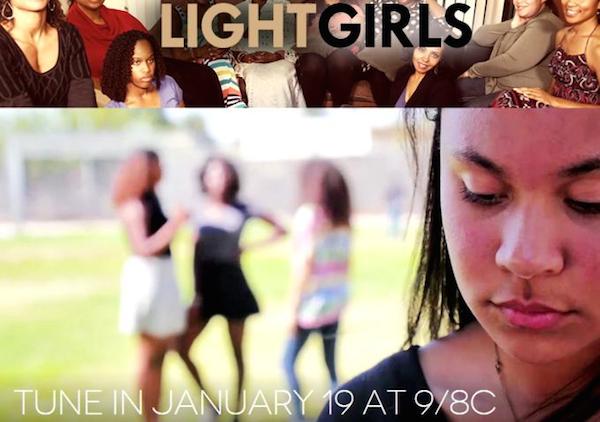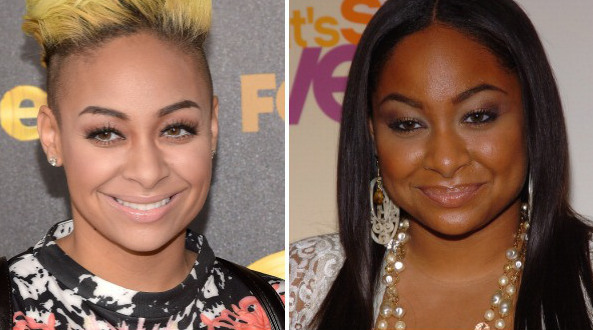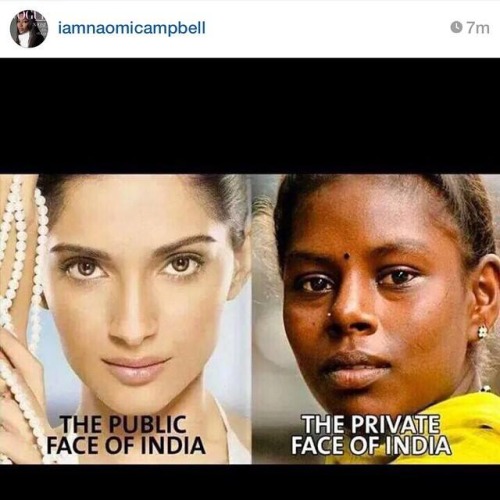We’re All Black Girls!
In the new OWN documentary film ‘Light Girls’ which premiered Sunday [Jan.19] Bill Duke continues the conversation about ‘colorism’ that exists within the black community and a heated debate sparked on social media regarding its title, it’s depiction of the dark-skin girl bullying effect, the male perspective, the denial of ‘light skin privilege’, the global systematic agenda, and more.
The sequel film begins with the history of the disease, dating back to the colonialism in ‘slavery’ where the fair skinned women were chosen to work in the slave master’s house while the dark-skinned persons remained in the cotton field. It is believed that from this perpetuated mindset, the divide amongst the the black race was created.
Fast forward to present day we see that this complexion divide is impacted throughout the world, leaving a deep scar on ‘black women’ as a whole.
Many of the women shared their pain of feeling ‘invisible’; for not being fully approved by the black community; and not fully accepted in to the white community because they’re part of the one-drop rule group. A few women shared truth tales on the ‘passing’ method aka ‘paper bag test’ that existed in their family upbringing that was instilled in them from their parents, and grandparents, in order to ‘get ahead’, and be accepted into society. Others talked about their personal challenges at schools, making friends, and having to ‘overcompensate’ to prove their blackness.
Michaela Angela Davis talked about the Jim Crow era and its mental plague of inferiority within the black race.
” My family wanted me to ‘survive’ and ‘be black’, but what happens when your a child and all you see is ‘dark skin people’ getting hung with their genitals in their mouth. “
CNN correspondent, Soledad Obrien talked about her experience shopping at a boutique store and repeatedly asked the famous question ‘What Are You? She replied: I’m Black! , ‘No Really What Are You?, Because All Black People Are Thieves’ -said the cashier.
” Seeing color is not inherently bad. Seeing a problem when you see color is. “– SoledadObrien
Soledad was one of the very few that spoke about the advantage of her skin tone in the work arena. However, the film did little to explore further on that particular issue.
The perception that ‘lighter skin’ women ‘behave better’ and ‘are better’ than their dark skin peers is a systemic problem, and while I appreciate the small clip on the global perspective which included the ‘skin bleaching’ phenom amongst black women, I felt that the film did more to ‘stir the division pot’ between light skin and dark skin women; hence the ‘#hashtag divide’ on social media with people choosing #teamlightskin, and #teamdarkskin which is complete nonsense if you ask me. Different that Duke’s ‘Dark Girls’ film which focused mostly on the historical context, in this film made ‘dark skin’ women’ were more of the appeared to be mean and angry bunch.
As a dark skin woman, and mother of two ‘light skin’ children different parts of the film was very ‘ informative and ‘insightful ‘ for me because I was born to a light skin mother, I felt pretty fortunate that I had great parents [after watching this film] there was never an issue of ‘colorism’ in our home. My siblings and I are all different shades of color and growing up my parents emphasized ‘black pride’ only; and that’s what I try to instill in my children.
While some women were praised for their commentary, the appearance of celebrities were also called into question. Raven Symone’s appearance raised the eyebrows of many because she’d recently come out in an interview with Oprah and stated that she doesn’t want to be referred to as a ‘black’ person. Tatiana Ali received alot of backlash for taking part in this documentary because many people categorize her as #teamdarkskin, and it gave nuance to another issue of how black women are categorize by the’ grade of their hair’.
Amber Rose bold admission was surprising for many who too felt that she never publicly claim her ‘black’ heritage. Amber reveals that her family was disapproved of her marrying a black man, and therefore they opt out of the wedding ceremony to her soon to be ex-husband Wiz Khalifa.
” With my family they feel like they’re more ‘superior’ or ‘better’ than an ‘African American’ because we’re ‘Creo’ and we have culture, and that’s something that I’ve battled with most of my life.
It’s more of like the the older people in my family. They didn’t come to wedding because they didn’t feel, umm… [pause] it’s so difficult, sorry. It’s such a sensitive subject that its hard to explain yourself without sounding mean, bitter, or angry, but I am. I’m angry that my family is like that, and they want to ‘pass’ so bad that they raised my mom, uncles, and aunts, to not fully know their culture, and our younger generation we’ve embraced it so much.
The male perspective was also added briefly and it added more salt on the wound. Personally, I think we could have done without the comedy; after all this was a serious topic. Comedian ‘Talent’ [yes that is his name] expressed that his preference were dark skin women over light skin women based on their submission to their man.
” They’ll get the popcorn, whoppers, and soda at the movie theater, meanwhile the light skin girl would be too stuck up. “
Was I the only one that didn’t get the joke, and I highly disagree with this notion. I was also surprised by the group of men who agreed in one consensus that light skin girls are the equivalent to a ‘red corvette’ in the line up of all ‘black cars’ at a car dealership.
Dr. Farrah Gray offered a different alternative, and called for union between the groups and a ‘cease’ in blaming ‘the white man’.
In closing, We’re all black girls at the end of it all, and its time we remove the ‘sliding scale’. Whether you were the ‘house negro’ or the ‘field negro’, you were still considered a ‘nigger’ in the eyes of the oppressor . Being chosen to wash dishes, or serve as a the personal maid to massa and family, was no better than those picking cotton.
Sadly this ‘prejudice devise tool’ is the very essence of ‘internalized racism’ that exists within our race today and its backed by a ‘white supremacy agenda’ that [for centuries] made us to believe that because the food that was was ‘produced’ on the plantation by one group [dark skin hue-mans] , and yet ‘served’ by another group [light skin hue-mans] we are somehow different from one another.
Now whose the boogeyman here?
It’s time for healing, and we must be ready to deal with the whole ‘ugly’ truth. Let’s start by removing the plantation mentality. India Arie said it best at the end of the film ‘change’ begins with us.
One Love PLUM’s!
In case you missed it, you can watch the full documentary below:




